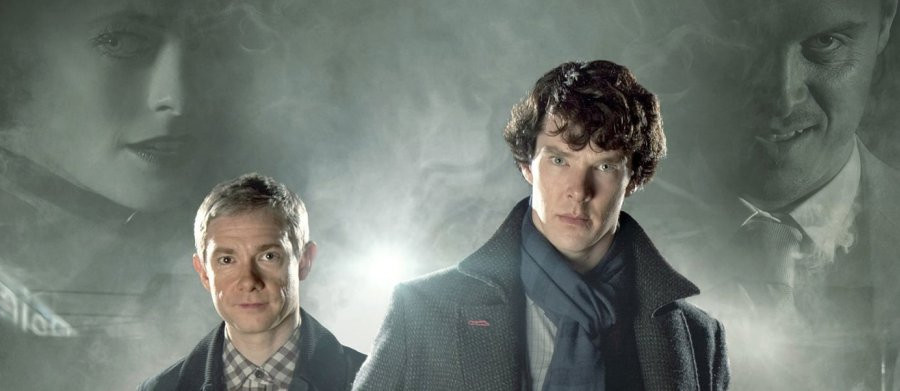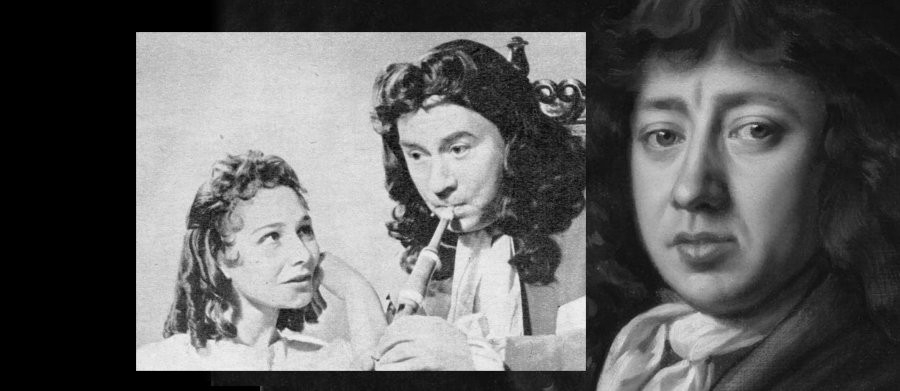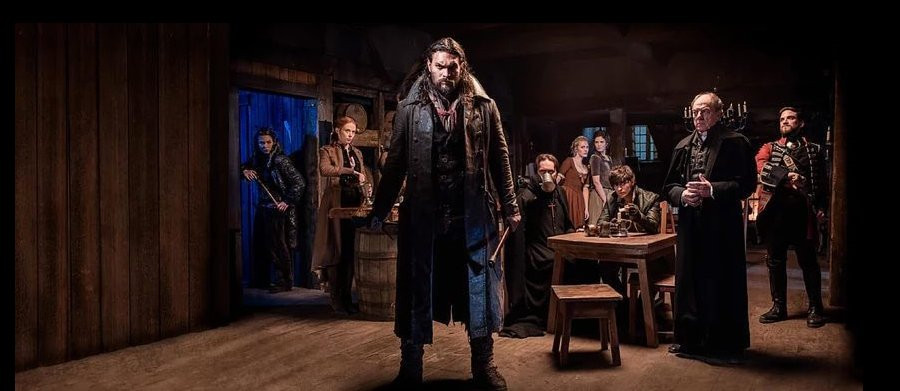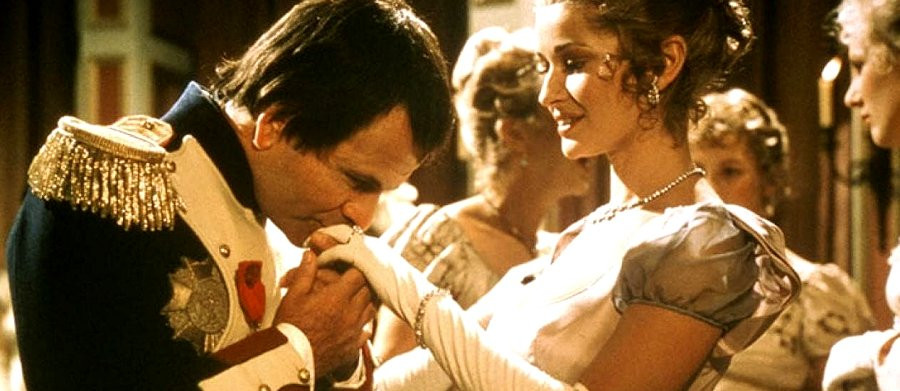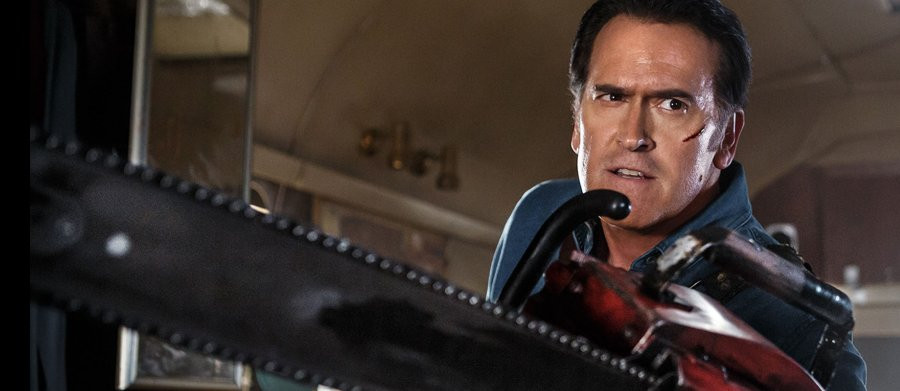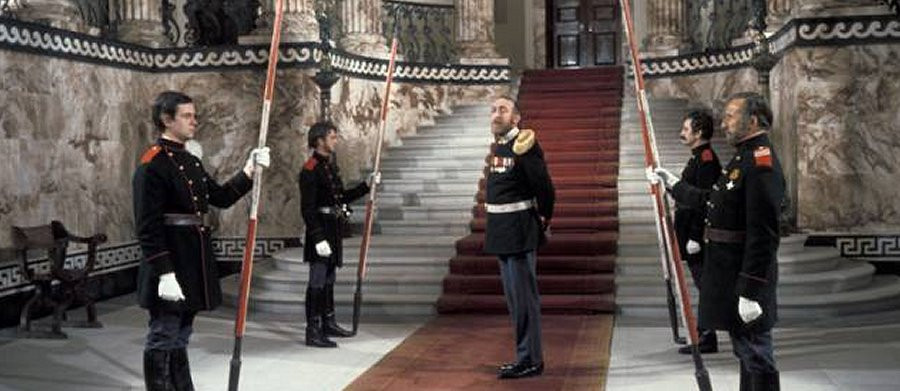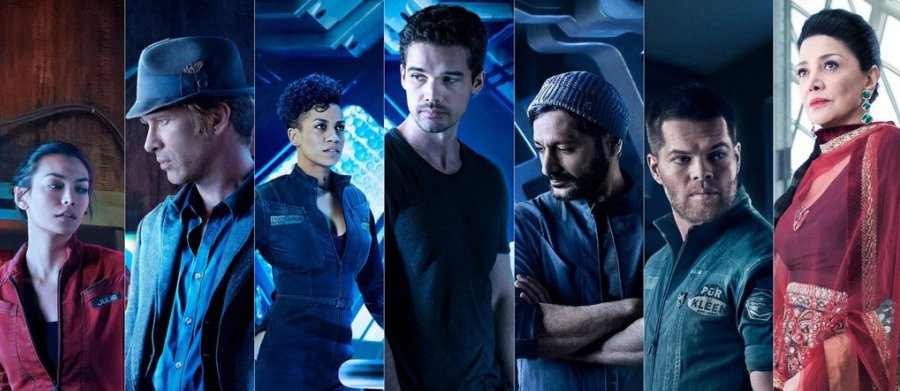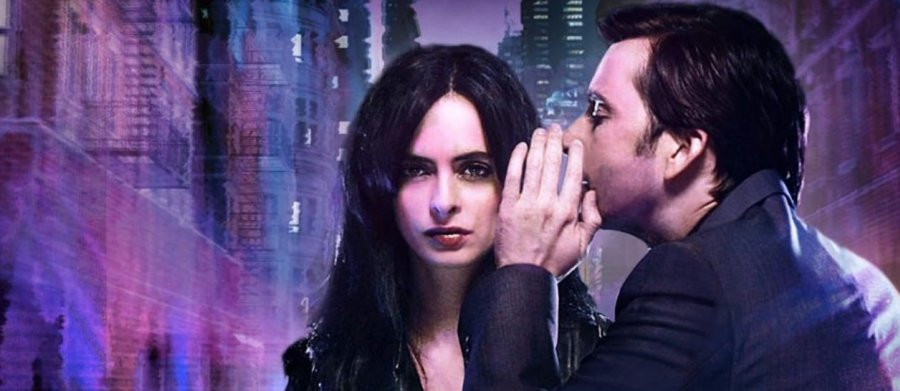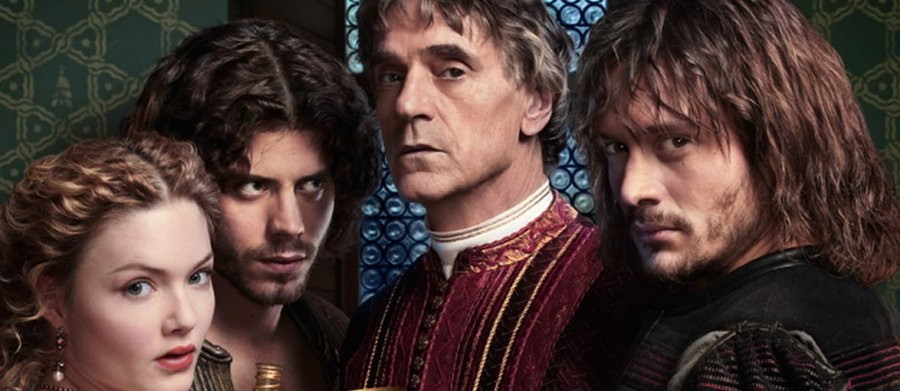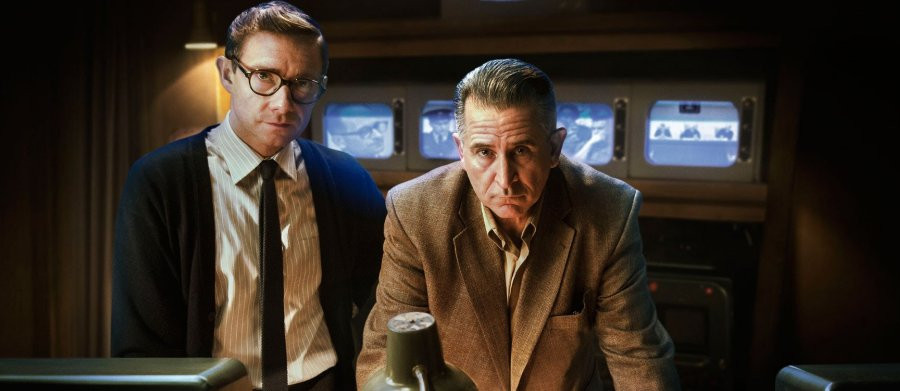
The Eichmann Show
2015 - United KingdomThe title of The Eichmann Show has several layers of meaning. Although the trial of SS Obersturmbahnnfuhrer Adolf Eichmann in Israel was scrupulously fair, and its verdict was just, it was openly and unashamedly a show trial. It was less about the relatively insignificant figure of Eichmann himself than it was about the Shoah as a whole and the status of the young State of Israel.
In the same way, The Eichmann Show, a freestanding BBC television drama about the televising of the trial, is less about Eichmann than about the power of television. It is a show about the making of a show about a show trial.
The historical background to the trial is strangely forgotten today. The Nuremberg trial of the surviving leaders of Germany's National Socialist Government had not provided the great catharsis many had hoped from it. Some of the reasons for this were dramatised in the 2000 Nuremberg. In particular, the principal architects of the Shoah - Hitler, Himmler, and Heydrich - were all dead, so there was no real accounting for the greatest single crime in history. A number of concentration camp personnel, in fact a tiny proportion of those employed, had been duly hanged for their own actions, but who was there to take responsibility for the genocide as a whole?
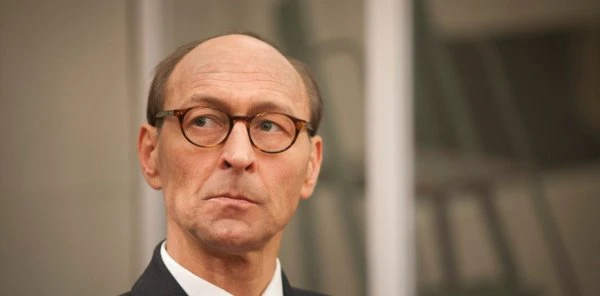
Adolf Eichmann had been a mid level bureaucrat. His pompous sounding SS rank was equivalent to Lieutenant Colonel. No high flyer, he had risen slowly from the ranks. He had in effect acted as Secretary to the Wannsee Conference which organised the "Final Solution." His office co-ordinated the implementation of the policy but did not initiate it. Indeed, although he was a committed National Socialist and Anti-Semite, he seems to have had no problem participating in an earlier failed attempt to co-operate with elements within the Zionist movement to facilitate a mass emigration of German Jews to the British Mandate of Palestine (if that sounds incredible, check out the 2011 documentary 'The Flat'). After the War, like a lot of National Socialists, he found relative safety living under an assumed name in Argentina, where many officials were privately sympathetic. There he was tracked down by the formidable Mossad, the Israeli intelligence service, using information provided by Simon Wiesenthal.
Jurists tend to be uneasy about what happened next, even if Eichmann deserved it and more. Mossad kidnapped him in Argentina and flew him secretly to Israel. Since the Argentine Government would almost certainly have tipped him off about a formal extradition request, there is no denying the necessity of this, but it was a clear contravention of both national and international law. All notion of legality was further undermined when a resident of one country accused of crimes in a second was put on trial for them in a third where he had never committed an offence - and which had not even existed at the time of his criminal activity.
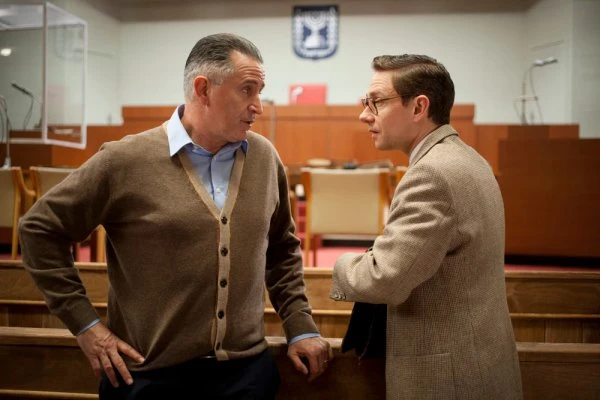
The general attitude at the time, however, was that the ends justified the means, and The Eichmann Show itself takes the same line. The main purpose of both the trial and the television drama was to provide a forum for eyewitness testimony about the Shoah as a whole, regardless of whether Eichmann himself was directly involved in the individual incidents or not, and in this both succeeded.
The great strength of The Eichmann Show is its blending of dramatisation with original footage to provide a powerful evocation of the shock caused by some of that testimony.
For it is a strange fact that much of it seemed to have been forgotten, or at least suppressed - not politically but psychologically. One of the truths that The Eichmann Show gets across very effectively is that the Shoah survivors themselves had at first been reluctant to talk of their experiences. Many must have been suffering from what would now be diagnosed with PTSD. They just wanted to get on with their lives and not look back.
When they did want to talk, they found no one wanted to listen. What they said sounded so horrific as to be literally unbelievable. In its early form, "Holocaust denial" was often not an evil attempt to revive National Socialism but, on the contrary, a very humane, if naïve assumption that human beings were surely incapable of doing such things to each other.
That it is no longer possible to believe that is due in large part to the testimony given at the Eichmann trial, and specifically to its televising.
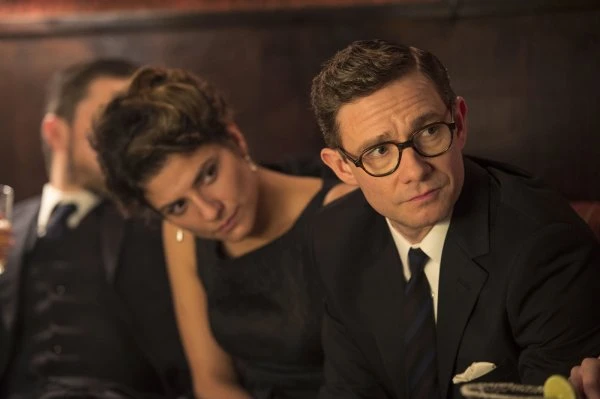
Before the trial, those Shoah survivors who had settled in Israel had an additional reason to keep quiet, which The Eichmann Show illustrates in a particularly well played scene. Like all new states, the State of Israel encouraged a founding mythology of heroic struggle. The original Jewish settlers had fought against the Arab inhabitants and sometimes even against the British administrators who were trying to keep the two sides from killing each other (it is another neglected historical fact that some terrorist gangs carried out atrocities against the British even at the very time Britain, supported by other Jews, was engaged in the War against National Socialism). These pugnacious settlers considered - very unfairly - that the victims of the Shoah had gone passively to the death camps "like sheep to the slaughter."
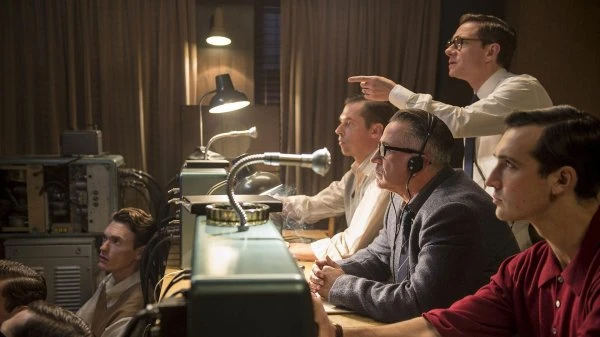
The televising of the Eichmann trial changed that. The full inescapable horror of the Shoah was brought home to all. The victims were not cowards. There was simply no room for heroism. The survivors themselves were at last able to talk about what had happened and they found people willing to listen.
The crucial point was that it was on television. Much of the testimony was already on the public record, but there is the world of difference between having it in an archive somewhere and broadcasting it directly into people's homes, enabling them to see the faces of the witnesses for themselves.
Perhaps the only disappointment from the viewer's point of view was the central character himself. A show trial really needs a big villain, like the larger than life Goering at Nuremberg, and Eichmann is notable only for prompting Hannah Arendt's great line about "the banality of evil" - by the way, full marks to The Eichmann Show for resisting the temptation to quote it directly and anachronistically: the drama makes the point, as good television should, by showing it rather than using the actual words.
Eichmann was in fact such a boring presence that a few years later, the actor Robert Shaw, who was also a fine writer, felt he had to make up a far more interesting fictional character to put in Eichmann's position in his novel and play The Man in the Glass Booth. Although Eichmann has since been played by such powerful actors as Robert Duvall, Stanley Tucci, and Thomas Kretschmann, even they cannot disguise the fact that he was essentially a nobody.
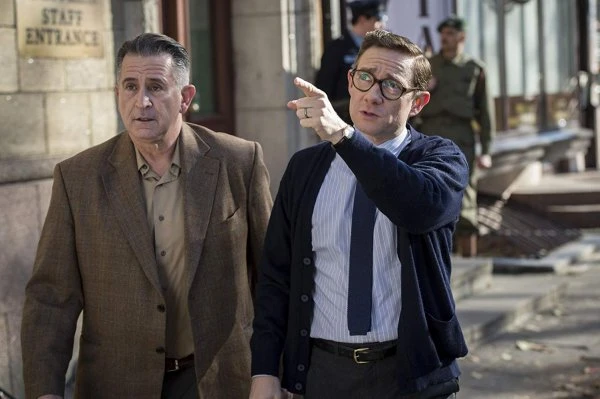
This rather makes the point that seems to obsess the director of the trial coverage, Leo Hurwitz, played by Anthony LaPaglia, in The Eichmann Show, that there are no monsters, just ordinary people who are capable of monstrous things.
The versatile Australian actor gives a strong backbone to the drama, as he usually does, in a commendably unshowy, no nonsense performance. It is not his fault that he is given a lot of backstory that is never really developed. He makes a nice double act with Martin Freeman, bristling with nervous energy, who plays his producer, even if the conflict between them sometimes seems a bit forced. Andy Nyman is likeable as the Israeli Government Press Attache who is totally up front about the trial's political agenda.
The two best performances, however, come from those consistently watchable actors Rebecca Front and Nicholas Woodeson as Shoah survivors.
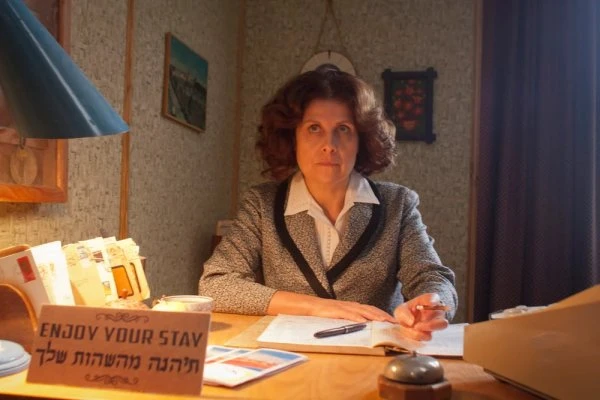
Front is the practical, down-to-Earth owner of the hotel where Hurwitz is staying. She is the traditional Jewish mother figure, except there is a definite melancholy about her - we see no children for one thing. The hotel seems empty. She seems semi-detached in her dealings with Hurwitz, getting his name wrong, and ambivalent at first about her own experience. Eventually she opens up and explains her attitude, and the attitudes of other people in Israel. She explains with a complete absence of sentimentality that is far more effective than any emoting. Everything about her is credible from start to finish.
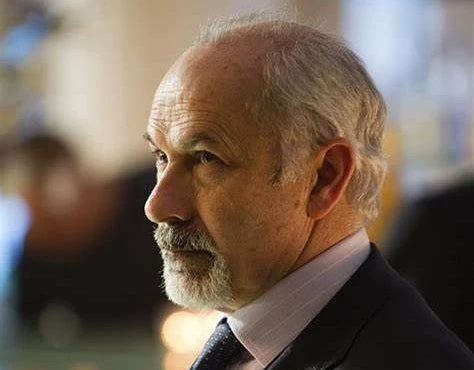
Woodeson is the senior cameraman with the production team. Although he looks a competent professional, he seems to be simmering with suppressed passion. He gets angry that Hurwitz is so firm in his belief that we are all capable of anything. It is no surprise that the trial brings out what he has been hiding from himself. He begins to talk freely about his own experience - a representative of the many who were able to do the same as a result of the trial coverage.
The production is not without faults. In particular, there are a lot of subplots or potential subplots inserted for dramatic effect that is never delivered. Yet, by taking an indirect look at the Shoah through the aspect of its coverage on television, it avoids the trap of "worthiness" all too often associated with the topic and offers a thought provoking study of the power of truth - and the power of television to tell that truth, when it wants to do so.
Review by John Winterson Richards
John Winterson Richards is the author of the 'Xenophobe's Guide to the Welsh' and the 'Bluffer's Guide to Small Business,' both of which have been reprinted more than twenty times in English and translated into several other languages. He was editor of the latest Bluffer's Guide to Management and, as a freelance writer, has had over 500 commissioned articles published.
He is also the author of ‘How to Build Your Own Pyramid: A Practical Guide to Organisational Structures' and co-author of 'The Context of Christ: the History and Politics of Rome and Judea, 100 BC - 33 AD,' as well as the author of several novels under the name Charles Cromwell, all of which can be downloaded from Amazon. John has also written over 100 reviews for Television Heaven.
John's Website can be found here: John Winterson Richards
Books by John Winterson Richards:
Published on February 18th, 2021. Written by John Winterson Richards for Television Heaven.


